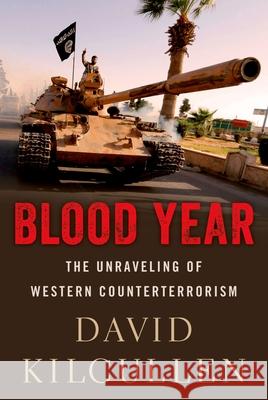Blood Year: The Unraveling of Western Counterterrorism » książka
topmenu
Blood Year: The Unraveling of Western Counterterrorism
ISBN-13: 9780190692261 / Angielski / Miękka / 2017 / 312 str.
In 2014, a resurgent and bellicose Russia took over Crimea and fueled a civil war in Eastern Ukraine; post-Saddam Iraq lost a third of its territory to an army of hyper-violent millennialists; and the peace process in Israel seemed to completely collapse. In short, the post-Cold War security order that the US had constructed after 1991 seemed to be coming apart at the seams.
David Kilcullen was one of the architects of America's strategy in the late phases of the second Gulf War, and he has also spent time in Afghanistan and other hotspots. In Blood Year, he provides a wide-angle view of the current situation in the Middle East and analyzes how America and the West ended up in such dire circumstances. Kilcullen lays much of the blame on Bush's initial decision to invade Iraq (which had negative secondary effects in Afghanistan), but also takes Obama to task for simply withdrawing and adopting a "leading from behind" strategy. As events have proven, Kilcullen contends, withdrawal was a fundamentally misguided plan. The U.S. had uncorked the genie, and it had a responsibility to at least attempt to keep it under control. Instead, the U.S. is at a point where administration officials state that the losses of Ramadi and Palmyra are manageable setbacks. Kilcullen argues that the U.S. needs to re-engage in the region, whether it wants to or not, because it is largely responsible for the situation that is now unfolding. Blood Year is an essential read for anyone interested in understanding not only why the region that the U.S. invaded a dozen years ago has collapsed into utter chaos, but also what the U.S. can do to alleviate the grim situation.










